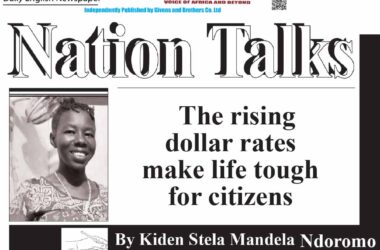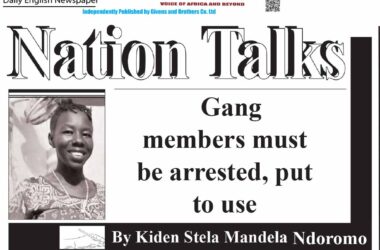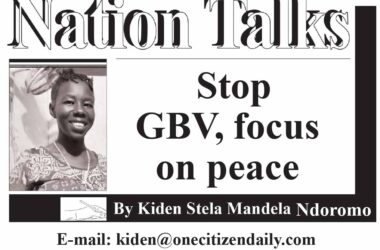Political viruses should not jeopardize the spirit of unified forces
By Kiden Stela Mandela
At the heart of the Revitalized Peace Agreement, the security arrangement in form of the necessary unified forces has seen tongues wagging among the warring parties to the September 2018 peace agreement. From the beginning as the agreement was scheduled; the unified forces were to be in place before the formation of the Revitalized Transitional Government of National Unity [R-TGoNU].
However, the parties could not easily agree, and cited the lack of fund and guns to graduate the forces. The situation threw the provision of the agreement tackling the security arrangement including graduation of the necessary unified forces into the dustbin; but the battle of dialogue has proven fruitful when the parties gave their weights behind the unified command structure and finally graduation of the unified forces as witnessed yesterday (Tuesday).
The graduation of the unified forces is significant to the peace agreement and the security of the nation. But examining the capacities of the unified forces, they are not well equipped both militarily and towards nationhood orientation or alignment. Those forces were kept waiting at the training sites for long to be graduated without basic needs like food, water, medicines, shelter and proper military trainings including attires. This gave them low morals with others deserting the training sites for their own businesses or quitting altogether. Now that some are graduated if they are not taken care of, it will be disastrous in terms of insecurity, and thefts because hungry soldiers can turn into looters or robbers using guns that they carry with empty stomachs as source of livelihood.
Before the war in 2013, the country was not having many commanders in chiefs, but they were political and tribal networks planted into the army structures by the politicians that saw the young nation witnessing bloody conflicts, sufferings, and displacements. As a result, many commanders –in-chiefs were manufactured along political and tribal lines hence disintegration of the social fabrics.
So, the peace agreement brought the conflicting parties together to share the nation’s cake that each had wanted to grab by force before. If the leaders again fail to learn from the past mistakes and continue to plant political and tribal allegiances, and patronages within the ranks and files of the army; we shall face the worst case scenario in future.
The Ministry of Defense and Veteran Affairs should table programs that bolster the strength and capacities of our army to protect the citizens, and the country territory from foreign aggressions. And strict principles or laws that bar and penalize soldiers from top ranks to the lower ones from associating themselves with parties’ politics and activities including wearing political parties’ garments.
There is an illusion among some South Sudanese in the army or organized forces that since SPLA/M championed the liberation struggle of South Sudan; it is by virtue for them to be members of the party while still active in the army or organized forces’ combats. This has left the room for exploitation by some politicians to recruit and plant their networks of influence. This must stop, the army or organized forces need to be highly oriented and know their role in the constitution with the principle that their first loyalty is to the citizens and the country not political parties.
Any party which is politically weak and is facing backlashes from the citizens because of poor performances should not run to the army or organized forces to seek support or backing against the citizens. Instead it should strategize policy vision and formulate solutions that address citizens’ needs and the nation.
God bless South Sudan
Be right there!



